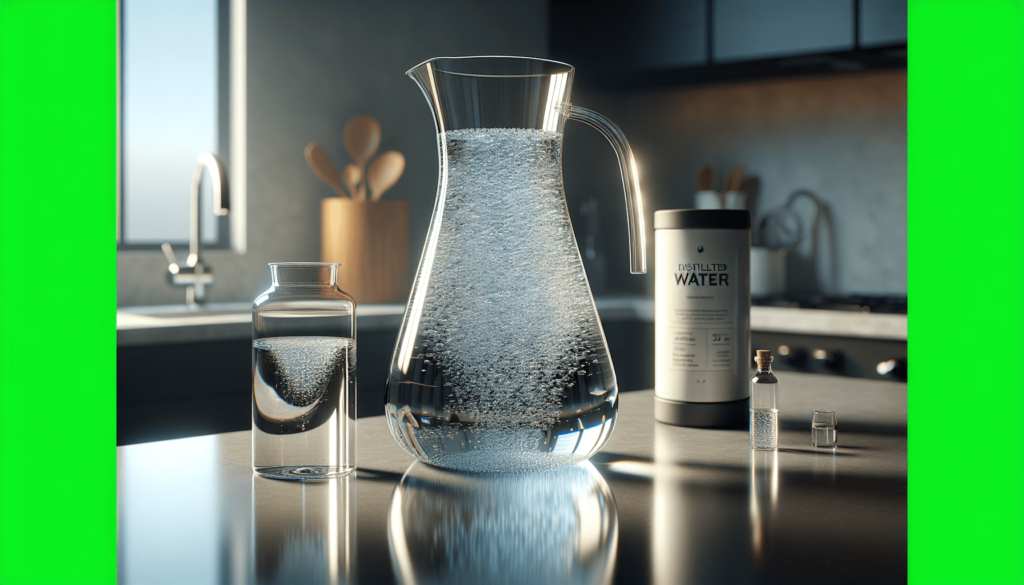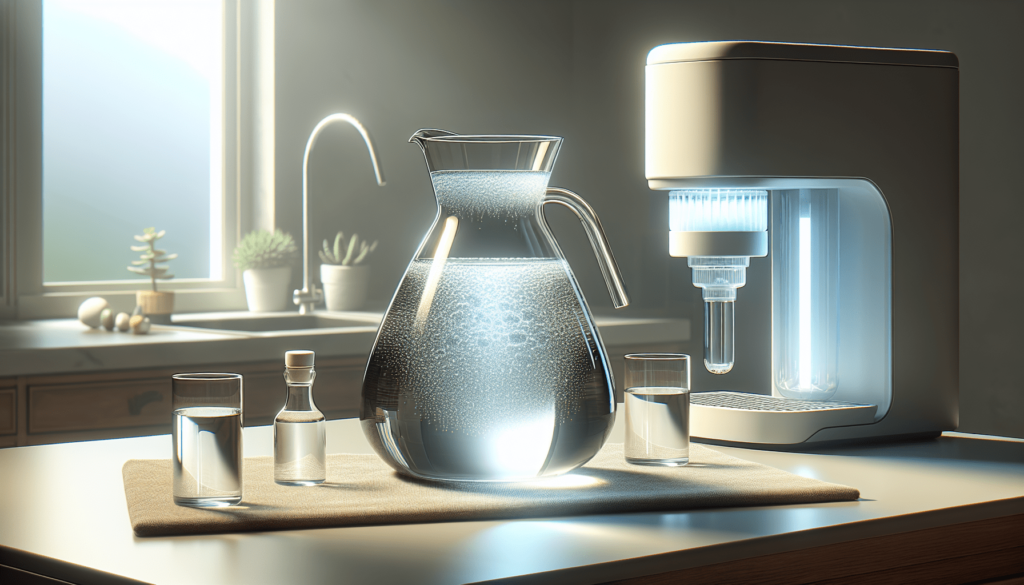Have you ever wondered if the type of water you use in your coffee maker matters? You might be surprised to learn just how significant the quality of water can be on your morning brew. Let’s dive into the debate: “Should I Use Distilled or Purified Water in My Coffee Maker?”

Understanding Distilled Water
What is Distilled Water?
Distilled water is produced through a process called distillation. This method involves boiling water and then condensing the steam back into a liquid, leaving most impurities and minerals behind. As a result, distilled water is typically very pure.
Benefits of Using Distilled Water
One of the main benefits of using distilled water is its high level of purity. It doesn’t contain minerals or impurities that can potentially affect the taste of your coffee or leave scale deposits in your coffee maker.
Potential Drawbacks of Distilled Water
While distilled water is very clean, its lack of minerals can sometimes lead to flat-tasting coffee. Coffee aficionados often highlight that minerals in water contribute to a more balanced and flavorful cup of coffee. Plus, the absence of these minerals might not be optimal for the longevity of your coffee maker, as some appliances require a certain level of mineral presence for efficient functioning.
Understanding Purified Water
What is Purified Water?
Purified water goes through a purification process that removes contaminants and impurities. This process can include methods like filtration, reverse osmosis, or ion exchange. Unlike distilled water, purified water still contains some minerals, but levels are significantly reduced.
Benefits of Using Purified Water
Purified water strikes a balance between removing impurities and retaining beneficial minerals that enhance the flavor of your coffee. This makes it a popular choice among coffee enthusiasts who want a more flavorful and balanced cup.
Potential Drawbacks of Purified Water
The main downside to purified water can be the cost and effort involved in consistently purchasing or filtering it. Moreover, depending on the purification method used, there might still be some residual impurities compared to distilled water.
Comparing Distilled and Purified Water
To make an informed decision, let’s compare the two types of water in some crucial aspects.
| Aspect | Distilled Water | Purified Water |
|---|---|---|
| Purity | Very high, most impurities and minerals removed | High, but retains some minerals |
| Taste Impact | Can lead to flat-tasting coffee | Enhances flavor due to retained minerals |
| Appliance Impact | May not be optimal for all coffee makers | Better for appliances due to some mineral presence |
| Cost | Generally cheaper | Can be more expensive (filtering/purchasing) |
| Convenience | Easily available | May require additional effort to filter/purchase |
The Impact on Your Coffee Maker
Scale Build-Up
One of the most significant concerns regarding the type of water you use is scale build-up. Minerals in water can form scale deposits in your coffee maker, potentially reducing its efficiency and lifespan. Distilled water is less likely to cause this issue because it lacks minerals, while purified water might still cause some build-up, but significantly less than regular tap water.
Appliance Longevity
Interestingly, some coffee makers are designed to function optimally with a certain amount of mineral content in water. The trace minerals can contribute to the machine’s electrical conductivity and efficiency. While distilled water might be too pure, purified water, with its balanced mineral content, can sometimes be a happier medium.
Maintenance
Using purified water can mean more frequent cleanings and descaling compared to using distilled water. However, manufacturers often provide guidelines based on the type of water you should use, so always refer to your coffee maker’s manual for specific recommendations.

The Impact on Coffee Flavor
The Role of Minerals
Minerals such as calcium and magnesium found in purified water enhance the extraction process, balancing acidity and bringing out the flavors in your coffee beans. Distilled water’s lack of minerals might result in a brew that seems blander or less complex.
Acidity and Bitterness
The absence of minerals in distilled water can sometimes lead to higher acidity and bitterness in the coffee, negatively impacting the flavor profile. On the other hand, purified water, retaining trace minerals, offers a more balanced acidity, contributing to a richer and smoother taste.
Environmental Considerations
Bottled Water Impact
If you choose to use bottled distilled or purified water, you might want to consider the environmental impact. Single-use plastic bottles contribute significantly to plastic waste. Filter systems for purified water can mitigate this concern by providing a reusable and more sustainable solution.
Distillation and Purification Processes
Both distillation and purification processes have an environmental footprint. Distillation requires a considerable amount of energy to boil water, making it less eco-friendly. In contrast, modern purification methods, especially those integrated into home systems, might be more energy-efficient.
Costs Involved
Initial Costs
Distilled water is generally cheaper to buy than investing in a home purification system or consistently purchasing purified bottled water. However, the cost of a purification system can be a long-term investment, reducing the recurring expense of buying bottled water.
Ongoing Costs
Using distilled water means continuous purchases, which can add up over time. A purification system, while requiring an upfront investment, often results in lower ongoing costs, particularly if you have access to a reliable water source.
Conclusion: What Should You Choose?
The decision between distilled and purified water ultimately depends on your priorities. If your focus is on avoiding impurities and you’re looking for an easy, cost-effective solution, distilled water might be the way to go. On the other hand, if you cherish the rich flavors in your coffee and are willing to invest in a purification system, purified water could be your best bet.
In summary, here’s a quick recap:
- Choose Distilled Water If: You prioritize purity, want to minimize scale build-up, and aim for a lower initial cost.
- Choose Purified Water If: You want a richer flavor, aim for a balanced approach with some mineral content, and are open to investing in a purification system or purchasing purified water.
By understanding the pros and cons of each, you can make a more informed decision that suits both your coffee taste preferences and practical needs. So next time you brew, remember that the type of water you use is as essential as the coffee beans themselves!
